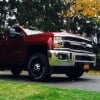2015 Sierra 4.3 L and high octane fuel
-
Recently Browsing 0 members
- No registered users viewing this page.
-
Forum Statistics
246k
Total Topics2.6m
Total Posts -
Member Statistics
-
Who's Online 19 Members, 1 Anonymous, 1,928 Guests (See full list)
















Recommended Posts
Archived
This topic is now archived and is closed to further replies.